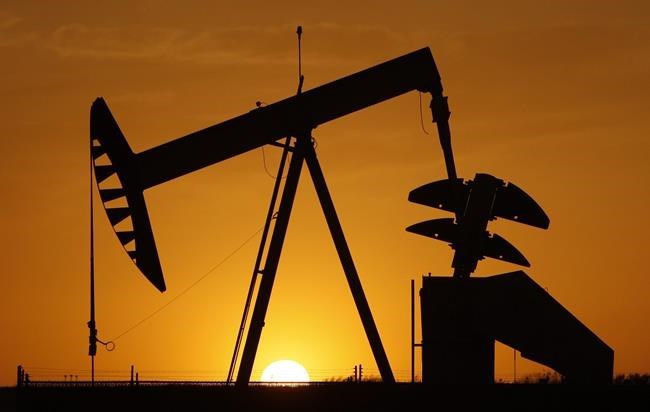CALGARY — The CEO of Whitecap Resources Inc. says his company is working to expand its ability to capture, store and use carbon dioxide to enhance oil recovery in spite of Ottawa's decision to exclude such projects from proposed investment tax credits in its recent budget.
The federal budget last week called for a consultation period to settle on final design of the proposed tax credit which would encourage major emitters in Canada to avoid releasing carbon dioxide into the atmosphere where it is a factor in global warming.
"We were disappointed with the government's neglect of the benefits of these projects to all Canadians," said Grant Fagerheim on Thursday during a conference call to discuss the company's first-quarter results.
"However, this does not preclude us from participating in other value-enhancing activities that our current CCUS (carbon capture, use and storage) projects can provide, such as (the sale of) carbon credits and reducing or eliminating the cost of CO2 used at Weyburn, Sask., and Joffre, Alta."
Whitecap's Weyburn project is responsible for about half of the four million tonnes of carbon dioxide sequestered each year in Canada. It injects it into an oilfield to enhance production, piping it in from a plant in North Dakota, and says it's possible to double that volume.
It says the much smaller Joffre CCUS project in central Alberta, acquired with the takeover of NAL Resources Ltd. earlier this year, could be more than doubled to store about 45,000 tonnes of carbon dioxide per year from 21,500 tonnes in 2020. Its carbon dioxide source is a nearby petrochemical plant.
Fagerheim said Whitecap's new energy team is discussing options with big emitters, such as cement and steel manufacturers and refiners, to help capture their carbon dioxide, while also looking at internal projects such as hydrogen production, which would result in further volumes of carbon dioxide to be stored.
"All projects, existing emitters, are currently trying to better understand what credit capacity is going to be created by the federal government as well as the provincial governments in both Alberta and Saskatchewan," he said.
"Whether it's on new hydrogen projects, which will create even more CO2, or other projects that exist at this particular time, the path forward is going to be through carbon capture. And therefore it can be very substantial (for Whitecap)."
Analysts said Whitecap's carbon initiatives make it a unique player in the oilpatch. Analyst Christopher Jones of Haywood Securities said in a report it's an "interesting differentiating factor" for the company.
Analyst Chris MacCulloch of Desjardins said Whitecap is strategically positioned to emerge as a global leader within the CCUS space.
"This should help drive lucrative business development opportunities that should eventually help reposition WCP as a clean tech story while still generating significant free cash flow," MacCulloch said.
Calgary-based Whitecap reported record production of 95,828 barrels of oil equivalent per day in the first quarter, up 30 per cent over 73,452 boe/d in the same period of 2020, or three per cent per share.
During the three months ended March 31, it completed the purchase of NAL and TORC Oil & Gas Ltd. in return for shares.
In early April, it struck a $300-million cash-and-shares deal to buy private Kicking Horse Oil & Gas Ltd., for 34.5 million Whitecap common shares and $56 million in cash.
Whitecap earned first-quarter net income of $19.6 million, compared with a net loss of $2.1 billion in the same period of 2020 when it recorded a $2.9-billion non-cash writedown in the value of its assets due to low oil prices.
It said Thursday its average realized crude oil price in the recent quarter was $65.11 per barrel, versus $47.48 a year ago, while natural gas liquids prices were $35.50 per barrel, up from $12.30, and natural gas sold for $3.34 per thousand cubic feet, up from $2.18.
This report by The Canadian Press was first published April 29, 2021.
Companies in this story: (TSX:WCP)
Dan Healing, The Canadian Press




